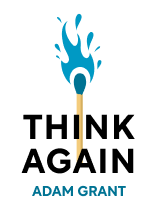

This article is an excerpt from the Shortform book guide to "Think Again" by Adam Grant. Shortform has the world's best summaries and analyses of books you should be reading.
Like this article? Sign up for a free trial here.
Why is it that after having achieved a big goal, many people feel unfulfilled? Why is it important to regularly re-evaluate your goals?
From time to time, it’s important to pause and reflect on whether the goal you are pursuing is still desirable. Committing to regularly reconsidering your life goals means that you may change course multiple times, but it will prevent you from pursuing the wrong path.
Here’s why it’s important to regularly review your goals, according to Adam Grant.
Why You Should Re-evaluate Your Goals
You may have set your sights on a specific goal early on in life, without considering whether or not this goal fits what you want out of life. Parents and teachers often encourage this, but when you form your life goals too early, they can become a core part of your identity.
As a result, you become resistant to reconsidering your goals because doing so would threaten who you are as a person. Instead, when it occurs to you that you may be on the wrong path, you may feel threatened—you’ll double down and commit to working even harder to achieve the wrong goals. This, of course, only serves to push you even further down an undesirable life path.
(Shortform note: In Range, David Epstein supports Grant’s conclusions about the negative effects of early adoption of goals and argues that parents and educators need to break away from the presumption that pursuing a specific path early in life will provide you with a ticket for success. Epstein says that parents and educators should instead facilitate opportunities for young people to try many different activities and subjects so that they can make informed choices about the goals they would like to pursue.)
Continually Re-evaluate Your Path
To avoid getting stuck on a life path you don’t want to follow, Grant suggests that you review your goals periodically on your own or with a partner, mentor, or friend. Put a reminder on your calendar to do this once or twice a year.
During these check-ins, ask yourself:
- “What has changed personally or professionally since I first decided to take this path?”
- “Have my personal goals changed?”
- “Am I challenged by what I am doing, or do I feel I have learned all I can in this role?”
- “Have I reached a turning point?”
| Creating Alternative Plans Grant suggests periodic check-ins to evaluate your life’s path, but you can go a step further by deeply exploring alternative paths. In Designing Your Life, Bill Burnett and Dave Evans suggest exploring your options by creating three life plans: a realistic plan, a radical departure plan, and a “sky’s the limit” plan. Realistic Plan: Develop an idea that you already have in mind. It might be a goal that you are already pursuing, or one that is on the horizon. Evaluate this realistic plan to see if it inspires you, aligns with your personal goals, or still meaningfully challenges you. If it doesn’t, you may need to explore other options. Radical Departure Plan: Create a plan for what you would do if your chosen life path no longer existed. This hypothetical thinking can help you envision a completely different future for yourself. Sky’s the Limit Plan: Make a plan for what you would do if money weren’t a factor. This plan helps you to creatively explore what makes you happy. |

———End of Preview———
Like what you just read? Read the rest of the world's best book summary and analysis of Adam Grant's "Think Again" at Shortform.
Here's what you'll find in our full Think Again summary:
- Why the ability to reconsider is more important than precise knowledge
- How knowledge and expertise can narrow your thinking and limit your potential
- How to improve your ability to reconsider things in work and in life






